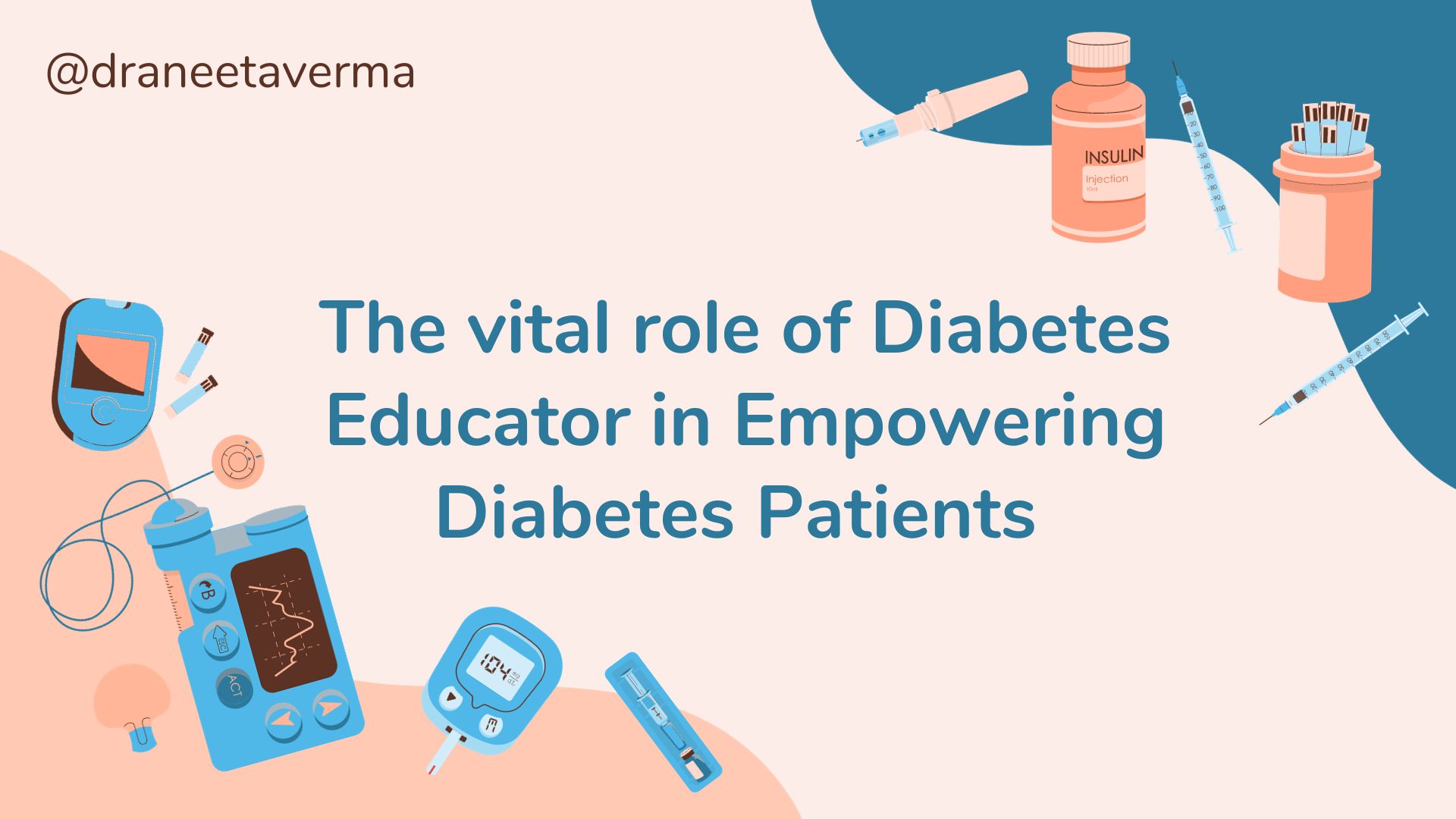+918048051883

This is your website preview.
Currently it only shows your basic business info. Start adding relevant business details such as description, images and products or services to gain your customers attention by using Boost 360 android app / iOS App / web portal.
The Vital Role of Diabetes Educators in Empower...

The Vital Role of Diabetes Educators in Empowering Diabetic Patients Living with diabetes can be a challenging journey, requiring individuals to make significant lifestyle changes to manage their condition effectively. In this complex landscape, diabetes educators play a crucial role in supporting and empowering diabetic patients. These healthcare professionals specialise in providing education, guidance, and personalised strategies to help individuals navigate the intricacies of diabetes management. This article explores the invaluable contributions of diabetes educators and the key ways in which they assist individuals in managing diabetes effectively. Education and Awareness: Diabetes educators are trained professionals who specialise in educating patients about diabetes, its complications, and effective management strategies. They provide essential information about the disease, helping patients understand the importance of blood sugar control, the role of insulin, and the impact of lifestyle choices on their health. Customised Treatment Plans: Each diabetic patient is unique, and diabetes educators work closely with individuals to develop personalised treatment plans. By considering factors such as age, lifestyle, and coexisting health conditions, educators help patients establish realistic and achievable goals for managing their diabetes. Nutritional Guidance: Diet plays a crucial role in diabetes management. Diabetes educators work with patients to create balanced and tailored meal plans that help regulate blood sugar levels. They educate patients on carbohydrate counting, portion control, and the importance of making healthy food choices to maintain stable glucose levels. Medication Management: Understanding and managing medications are fundamental aspects of diabetes care. Diabetes educators provide guidance on the proper use of insulin, oral medications, and other diabetes-related drugs. They ensure that patients comprehend their medications, dosages, and schedules, promoting adherence and optimal therapeutic outcomes. Lifestyle Modification: Diabetes educators assist patients in making lifestyle modifications to improve overall health and better manage their condition. This includes promoting regular physical activity, stress management techniques, and developing strategies for coping with the emotional challenges associated with living with diabetes. Continuous Monitoring and Support: Managing diabetes is an ongoing process, and diabetes educators offer continuous support to patients. Regular check-ins, monitoring of blood glucose levels, and adjustments to treatment plans are part of the ongoing care provided by educators. This helps patients stay on track and make necessary adjustments to their diabetes management strategies. Empowering Self-Care: Diabetes educators empower patients to become active participants in their own care. By providing the knowledge and skills necessary for effective self-management, educators enable patients to make informed decisions and take control of their health. This empowerment fosters a sense of independence and confidence in managing diabetes on a day-to-day basis. Diabetes educators play a pivotal role in the holistic care of diabetic patients, providing essential education, support, and guidance. Through personalised approaches that address the unique needs of each individual, these professionals empower patients to make informed choices, leading to better diabetes management and improved overall well-being. As we continue to advance in diabetes care, the collaboration between patients and diabetes educators remains a cornerstone for successful diabetes management.

